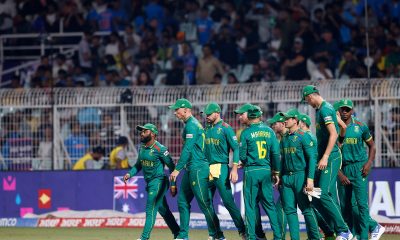In 2019 we have already seen two international skippers earn themselves suspensions for their side’s failure to maintain the over-rate required by cricket’s playing conditions.
The Proteas’ Faf du Plessis was suspended for the third and final Test against Pakistan, while West Indies skipper Jason Holder missed the third Test against England this month after running afoul of the timekeepers.
All international captains know what the risks are if their team’s over-rate slips too far behind the benchmark of 15 overs per hour of play, yet very few teams ever manage to maintain the standard without deploying multiple frontline spinners – and some even struggle when operating spin in tandem for long periods.
We are told that slow over-rates are the scourge of the modern game, but the only place you will hear that nonsense is in the press box – and the long room. Nobody is sitting at Newlands sipping the sponsors brew with an eye on the over-rate, though, are they?
Historically a figure of 15 overs in an hour has seldom been attained as an average and the likes of Michael Holding and Shaun Pollock have called on the International Cricket Council to review that number in order to guarantee quality cricket over quantity.
Du Plessis and Holder both missed out despite the matches they were involved in all finishing with days to spare.
The ICC allows for a certain amount of give in the regulations, with time deducted when wickets fall and for drinks breaks, but the 15-over mark threatens a Test cricket mainstay, the theatre of fast bowling.
Test cricket has a unique pace – and quick bowling is something that ironically cannot be rushed. Each ball is delivered with massive effort and the walk back to the mark is recovery time. Time must also be allowed for the big guys to share their thoughts with the batsmen, being mindful that the world is listening through the stump mics, of course.
The game of cricket is so much more than the balls bowled and the scorecard. The psychological battle is what draws lovers of the format in, but the ICC deals in television dollars, not sense.
The ICC rely heavily on broadcasters for the generation of revenue, as do each of the individual boards – and pressure from TV forced cricket to start suspending captains who couldn’t deliver quantity cricket.
Skippers guilty of this offence face the same punishment as players found guilty of ball-tampering did until a recent review in the wake of the Australian sandpaper incident. While captains are given multiple warnings throughout matches, most sensible cricket pundits would agree that a rate of 15 overs per hour is too high.
That isn’t to say that it is not attainable, but the rate is just too rapid-fire to allow Test cricket time to breathe and develop – and for other drama to unfold.
The ICC should not sacrifice quality Test cricket at the altar of TV rights. Lovers of the game deserve so much better.


























